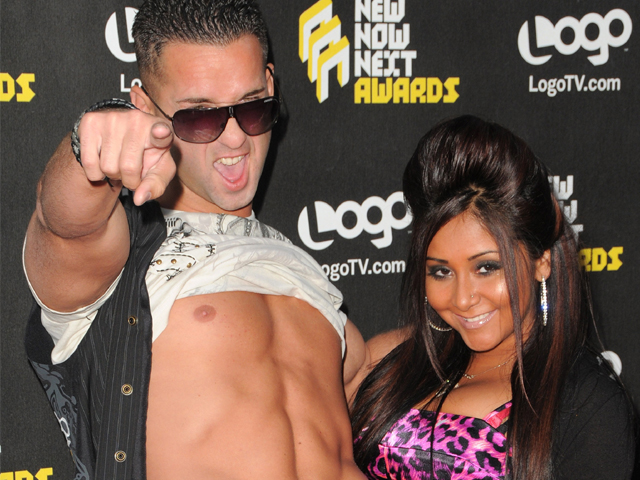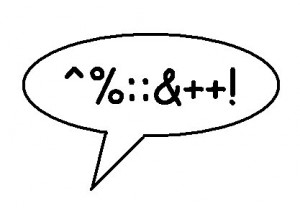 I strongly believe that everyone should be offered the opportunity to
gain a seat at the proverbial “table”. Once seated, however, your behaviour
dictates your worth to societal and organizational development. Should your
behaviour become an intentional blockade to betterment, I firmly believe that
your seat should be removed, and you should be directed to the nearest
exit.
I strongly believe that everyone should be offered the opportunity to
gain a seat at the proverbial “table”. Once seated, however, your behaviour
dictates your worth to societal and organizational development. Should your
behaviour become an intentional blockade to betterment, I firmly believe that
your seat should be removed, and you should be directed to the nearest
exit.
As I have mentioned previously, we are very proud of our social media
voice. We utilize our space to curate quality materials from around the globe
that can all be tied back to impactful diversity, leadership, and, in turn,
human resource content.
There is a great responsibility that comes with being a media source
and we have a firm understanding and appreciation of that responsibility,
specifically when it comes to diversity and inclusion. Behind each piece we
choose to post, we believe there is useful take-away information that will help
to better yourself, your work-life and your place of business.
We uphold this responsibility with an empathetic mindset and
constantly ask ourselves what the piece is saying of value, who is producing
it, and what will it lead our followers to not only think, but also to feel. We must be accountable for the
information we are offering and the brand names / thought-leaders we are promoting
for further insights. The power of social media is so great, that even the mere
mention of a name in a negative light still garners valuable attention. Some certainly believe, “There is no such
thing as bad press”.
 No stranger to grabbing the headlines with aggressive discriminatory
language, American lawyer, conservative social and political commentator,
author, and syndicated columnist Ann Coulter has violated her way into the
media several times in the last month or so.
No stranger to grabbing the headlines with aggressive discriminatory
language, American lawyer, conservative social and political commentator,
author, and syndicated columnist Ann Coulter has violated her way into the
media several times in the last month or so.
A couple of prime examples:
Several weeks ago, we celebrated “National Coming Out Day”, a day
where the LGBT community and their allies are encouraged to publicly identify
themselves.
Ms. Coulter chose to respond to National Coming Out by tweeting:
"Last
Thursday was national 'coming out' day. This Monday is national 'disown your
son' day."
Soon after, the recent U.S. Presidential debates were the dominant
topic of choice in the social media world, as one would of course expect.
Ms. Coulter chose to tweet the following about President Obama:
"I highly approve of Romney's decision to be
kind and gentle to the retard"
 She chose to counter
the beautiful letter written to her by Special Olympian John Franklin Stephens – one that politely, intelligibly, and
calmly explained to her why her choice words matter – with:
She chose to counter
the beautiful letter written to her by Special Olympian John Franklin Stephens – one that politely, intelligibly, and
calmly explained to her why her choice words matter – with:
“I was not referring to someone with Down
syndrome. I was referring to the president of the United States,” said Coulter,
adding that she views “retard” as a synonym for loser. “Do you call people with
mental disabilities retards because I don’t. I think that’s a nasty thing to
do.” – Disability Scoop
When it
comes to aggressive behaviour, it’s important to figure out what the
aggressor’s goal is in order to best assess how it will affect you.
Ms. Coulter
chooses to be emotionally violent because she and her team have a very specific
understanding of the outcomes that her words attract. Media outlets, large or
small, will print her name, which leads to her personal financial gain, and an
attraction of like-minded people to her preferred political party.
Popular
television programs such as “The View” and “Piers Morgan Tonight” invited Ms.
Coulter to their program to specifically discuss her “views and beliefs” of
the diversity conversation. They choose
to invite her, ostensibly to offer a different view of the world to the public,
no matter how puerile some might believe that view to be.
As a
diversity professional, I firmly believe in hearing all sides of the story,
inside and out –even if that means enduring “opinions” with which I disagree.
However, by using the type of language she does and by showcasing her lack of
empathy or public class, Ms. Coulter doesn’t offer an opinion, only infliction.
Seeking to
outrage people by utilizing discrimination does nothing but attract attention. When
there is no substance to what you are saying, you are now officially a nuisance
to society. Additionally, justifying your intentional verbal violence by
calling it “free speech” is dismissive and offensive to the true argument
behind the reason for freedom of speech.
Effective points
can be made without defaming another person. There is so much brilliance to be
shared and gained across political lines, cultures, and beliefs. People such as
Ms. Coulter are the true barricades to that un-tapped and sorely-needed
innovation.
We can certainly
be bold with what we have to say. We can even be “shocking”. But to be bold and
shocking for the sake of public attention and notoriety is just plain wrong in
our opinion. Arrow-pointing discriminatory language accompanied
with a complete disregard for all around you is just a cheap sucker punch.
Global
Learning encourages all persons – be they liberal, conservative or moderate –
to speak their minds; but when you seek to provoke harm to others, we should no
longer offer you the space or venue in which to promote your narrow-minded
goals. We hope all bloggers and media sources might consider the same tactic.
This will
be the last time we post anything about Ann Coulter to any of our accounts. She
is not worthy of our time, nor yours, if you are a true diversity champion.
She is no
longer welcome at our table.
“Whoever one is, and wherever one is, one is
always in the wrong if one is rude.”
~Maurice Baring





